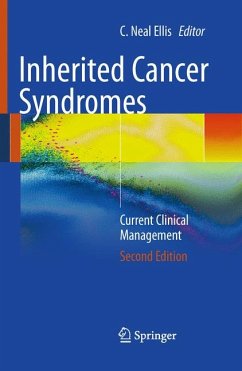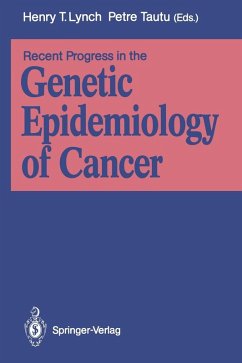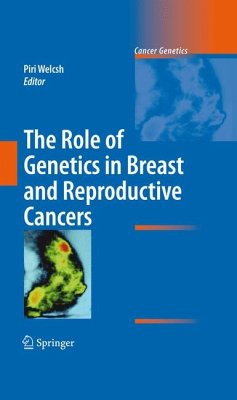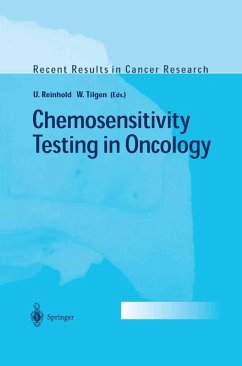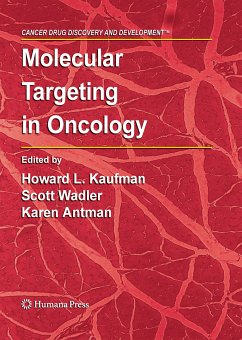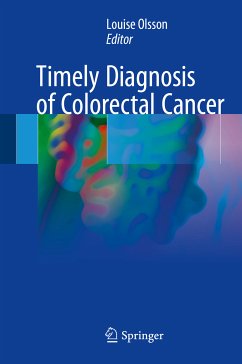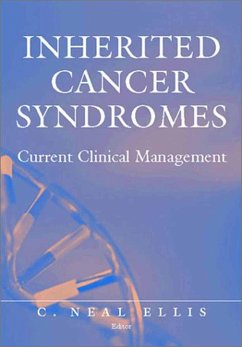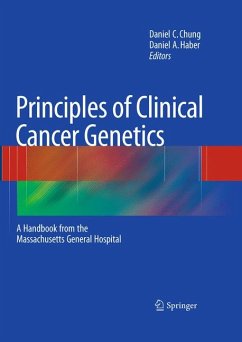
Principles of Clinical Cancer Genetics (eBook, PDF)
A Handbook from the Massachusetts General Hospital
Redaktion: Chung, Daniel C.; Haber, Daniel A.
Versandkostenfrei!
Sofort per Download lieferbar
80,95 €
inkl. MwSt.
Weitere Ausgaben:

PAYBACK Punkte
40 °P sammeln!
Advances in genetics are transforming estimates of an individual's risk of developing cancer and approaches to prevention and management of cancer in those who may have increased susceptibility. Identifying and caring for patients with hereditary cancer syndromes and their family members present a complex clinical, scientific and social challenge. This textbook, by leading experts at Massachusetts General Hospital Cancer Center, highlights the current understanding of the genetics of hereditary cancers of the breast, ovary, colorectum, stomach, pancreas, kidney, skin, and endocrine organs. Pra...
Advances in genetics are transforming estimates of an individual's risk of developing cancer and approaches to prevention and management of cancer in those who may have increased susceptibility. Identifying and caring for patients with hereditary cancer syndromes and their family members present a complex clinical, scientific and social challenge. This textbook, by leading experts at Massachusetts General Hospital Cancer Center, highlights the current understanding of the genetics of hereditary cancers of the breast, ovary, colorectum, stomach, pancreas, kidney, skin, and endocrine organs. Practical guidelines for the use of genetic testing, cancer screening and surveillance, prophylactic surgery, and promising targeted therapeutic agents are discussed.
In addition, ongoing research involving genome-wide screens to identify novel modest risk-associated genetic loci are explored, along with new approaches to the application of genetic markers in guiding therapeutic options.
In addition, ongoing research involving genome-wide screens to identify novel modest risk-associated genetic loci are explored, along with new approaches to the application of genetic markers in guiding therapeutic options.
Dieser Download kann aus rechtlichen Gründen nur mit Rechnungsadresse in A, B, BG, CY, CZ, D, DK, EW, E, FIN, F, GR, HR, H, IRL, I, LT, L, LR, M, NL, PL, P, R, S, SLO, SK ausgeliefert werden.




